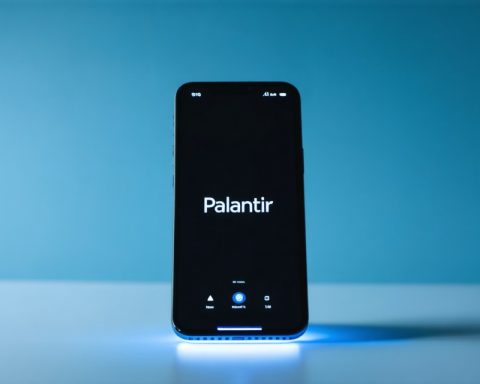- Rivian expands beyond Amazon exclusivity to target a broader market with its electric commercial vans.
- The company partners with major players like AT&T to meet the rising demand for sustainable last-mile delivery vehicles.
- This strategic pivot aims to mitigate the potential risk from Amazon’s waning interest and boosts growth prospects by 2025.
- Rivian positions its vans as crucial solutions for eco-conscious businesses, enhancing its appeal amid industry stagnation.
- The move marks a significant shift, offering a potential rebirth for Rivian in the competitive electric vehicle sector.
In a bold strategic move, Rivian is unlocking the doors to their electric commercial vans for a wider audience, stepping out from Amazon’s shadow to explore vast new horizons. Against a backdrop of potential stagnation, this maneuver could be the jolt needed to electrify Rivian’s path forward. Imagine these eco-friendly giants invading city landscapes, transitioning from quiet Amazon exclusivity to a bustling presence in diverse business fleets.
The promising trials with formidable partners like AT&T unveil a readiness to seize the opportunity in the skyrocketing demand for sustainable last-mile delivery vehicles. While Amazon’s interest seems to flicker, Rivian’s broadening sales strategy could shield them from uncertainty and fuel their ascent towards transformational growth by 2025.
Against industry whispers suggesting stalled momentum, Rivian is quietly but confidently positioning its commercial vans as essential solutions for cost-conscious, green-minded businesses. This shift doesn’t just breathe life into Rivian’s portfolio; it presents a new frontier of technological innovation and environmental responsibility, echoed in every silent, sleek vehicle.
Despite the looming threat of Amazon cooling its interest, Rivian is poised for ambitious expansion. Should Amazon pull back, it represents not just a risk but a critical evolution point, propelling their commercial vehicle line as a catalyst of change. For investors and fleet managers alike, the message is clear: Rivian is ready to transform potential obstacles into pioneering opportunities, promising a future where these electric workhorses drive unseen triumphs.
This pivotal expansion into the commercial sector might not just yield significant growth for Rivian—it could set a benchmark for the electric commercial vehicle industry at large. Rivian is on the brink of a renaissance, and all eyes are watching to see if these vans become their unsung heroes.
The Electrifying Expansion of Rivian: A Game Changer in the Commercial EV Market
Market Trends: Rivian’s Strategic Shift in Focus
Rivian’s decision to broaden the scope of its electric commercial vans beyond Amazon reflects significant market trends favoring sustainable logistics options. Currently, there is an increasing demand for eco-friendly last-mile delivery solutions, driven by both regulatory pressures and consumer awareness. This surge is projected to continue, with estimates predicting the electric commercial vehicle market will grow at a CAGR of 29% from 2023 to 2030.
Market Forecasts and Expansion Opportunities
The expansion to other corporate customers like AT&T highlights Rivian’s readiness to capitalize on the growing need for efficient and green distribution networks. Analysts predict that this could potentially double Rivian’s market share within the next five years, making them a formidable competitor in the electric commercial vehicle sector.
Innovations and Sustainability: What Sets Rivian Apart?
Rivian’s vans are designed not only with efficiency in mind but also with sustainability as a core value. By integrating advanced battery technology and innovative design features, Rivian aims to reduce environmental impact while maintaining high performance. Their commitment to sustainability positions them as leaders in setting industry benchmarks for eco-conscious manufacturing and operation.
Key Questions and Answers
1. What are the major features of Rivian’s electric commercial vans that appeal to businesses?
Rivian’s commercial vans come equipped with cutting-edge battery technology that offers extended range and enhanced reliability—crucial for last-mile deliveries. Additionally, the vans include robust telematics for fleet management, making them an appealing choice for businesses seeking to streamline operations and reduce carbon footprints.
2. How might Rivian’s expanded reach affect its relationship with Amazon?
Expanding beyond Amazon allows Rivian to decrease dependency on a single client, mitigating risks associated with having a concentrated customer base. This independence not only protects Rivian from potential fluctuations in Amazon’s strategy but also encourages innovation and market diversification.
3. What are the potential risks and limitations of Rivian’s expansion into a broader market?
While diversification presents growth opportunities, it also comes with challenges. Rivian may face increased competition from established players in the electric commercial vehicle market. Moreover, scaling production to meet broader market needs could strain resources and operational capabilities, especially given current supply chain constraints.
For more insights on electric vehicle innovations and industry trends, you can explore Rivian.











